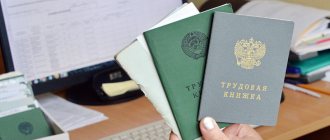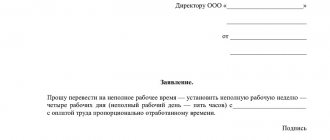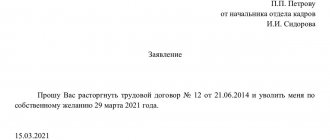SanPin requirements for production premises
Certain SanPiN requirements have been established for production premises or offices. If the temperature in a workplace (the standards are officially enshrined in laws) deviates from acceptable parameters, the manager, according to the rules, must limit the time an official spends at the workplace or take care of improving conditions.
SanPin
For example, an eight-hour standard working day is maintained only under conditions where the room temperature is no more than 28°C and no less than 20°C. Extra or missing degrees reduce the working day by 1 hour.
For this reason, special thermometers must be installed in each production or office premises at a height of approximately 1 m from the floor in order to monitor compliance with working conditions established at the official level. If the conditions do not meet the requirements, the employee must receive work with additional pay at an industrial establishment.
Seasonal norms
Temperature standards in office premises vary depending on the season. The office should not be too hot or cold. It can be harmful to the health of people who work in enclosed spaces when exposed to elevated temperatures for long periods of time.
Given that the office is not properly ventilated and a large number of people accumulate in it, this can have a detrimental effect on the work process. The situation is aggravated by the included office equipment and tight, closed clothing, which is a dress code requirement.
In this regard, certain temperature standards were adopted at the legislative level in the summer - from 23 to 25 degrees. The relative humidity should be no more than 60%. In exceptional cases, the temperature may be increased to 28 degrees.a
If the thermometer in the office shows a deviation from the norm by even two degrees, work productivity can be sharply reduced, since headaches and loss of concentration are possible due to the stuffiness in the room.
The employer must correct the situation by installing an air conditioner in the room and ensuring its proper operation. If this is not done, the employee will be forced to endure the heat, which is already a violation of sanitary standards.
According to SanPiN, if the standard indicators in the office are exceeded, the employee has the right to reduce the working day by a certain number of hours:
- Temperature 29 – 30 degrees – reduction of the working day from 8 to 6 hours.
- With each subsequent increase in temperature, the day is shortened by another 1 hour.
- If the indicator reaches 32.5 C, then the time spent in the office as a whole should not exceed 1 hour.
Since many citizens note that air conditioning can have a negative effect, and the harm from this is compared to stuffiness and heat, SanPiN requirements were adopted, according to which the employer must maintain a certain humidity in the room.
Air movement in the office should be in the range of 0.1 - 0.3 m per second. Workers should not sit directly under the air conditioner as they may become hypothermic.
Like heat, cold is the enemy of productivity in the workplace. A person sitting in a chair cannot warm up, as a result, cannot concentrate. According to legal standards, lowering the temperature in the office to 15 degrees is not acceptable. Such standards apply only in some production workshops.
In winter, autumn and early spring, according to GOST and SanPiN, the temperature in the room should be kept from 22 to 24 degrees. During the day, the temperature can jump by 1-2 degrees, maximum by 4C, only for a short period of time.
Minimum room temperature according to the Labor Code
According to the requirements of the Labor Code of the Russian Federation, the temperature in the office, according to sanitary standards, in winter should not fall below 20 ° C (minimum). If the standards have been violated, the employer is obliged to install an additional heater or reduce the number of working hours per week.
Lighting standards for an office workplace
In the Labor Code of the Russian Federation there are certain temporary norms (normal conditions), or rather their reductions when the room temperature is too low:
- 19 °C - 7-hour working day;
- 18 °C - the employee must be released after 6 hours in the office;
- 17 °C - 5 hours;
- 16 - 4 hours;
- 15 - 4 hours;
- 14 - 2 hours
For your information! Experts studying working conditions have found that a person is strictly prohibited from working at an ambient temperature below 13°C, since this is dangerous for the body. Vital functions of the body will be disrupted.
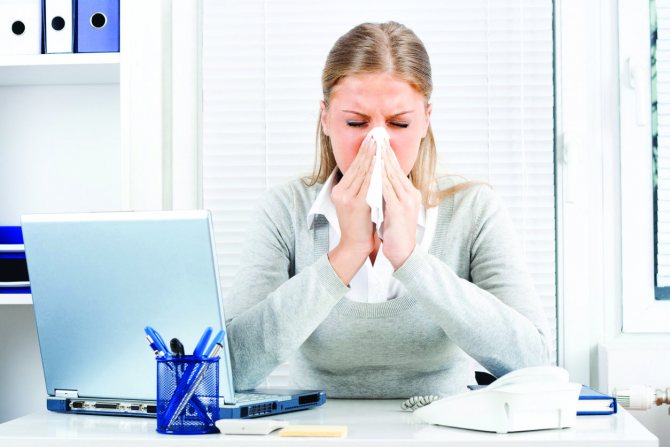
If the room temperature is low, the employee will get sick
Temperature and working time table
| Air temperature at the workplace, °C (for the cold season) | Time spent at work, hour. (no more) | Air temperature in the workplace, °C (for the warm season) | Time spent at work, hour. (no more) |
| 6 | 0 | 33 | 0 |
| 7 | 0 | 32,5 | 1 |
| 8 | 0 | 32 | 2 |
| 9 | 0 | 31,5 | 2,5 |
| 10 | 0 | 31 | 3 |
| 11 | 0 | 30,5 | 4 |
| 12 | 0 | 30 | 5 |
| 13 | 1 | 29,5 | 5,5 |
| 14 | 2 | 29 | 6 |
| 15 | 3 | 28,5 | 7 |
| 16 | 4 | 28 | 8 |
| 17 | 5 | 27,5 | 8 |
| 18 | 6 | 27 | 8 |
| 19 | 7 | 26,5 | 8 |
| 20 | 8 | 26 | 8 |
What temperature should the office be?
A special document on hygienic requirements for indoor climate was drawn up for office workers (this also applies to medical institutions and schools). By defending your rights, you can take advantage of them. There are sanitary standards that affect the well-being of the population. The law was adopted by the government back in 1999, however, the adopted and established requirements must be strictly observed by the manager for employees of office premises.
The width of the corridor according to fire standards and its length
If an employee is in the office for a standard 8 hours every day, then the employer must provide him with a comfortable temperature (this also applies to people working in shifts):
- for summer days - 23-25 °C;
- on cold days - 22-24 °C.
Note! According to SanPiN requirements, deviations from the accepted standard temperature in the office cannot exceed 1-2 degrees. If this occurs, employees should report the problem to their immediate department manager.
The law also contains information about indoor humidity, which is also of great importance for the human body. The indicator should be approximately 40%, but not exceed 60%. These are optimal working conditions.
Standard according to SanPiN
Few people know, but certain criteria are prescribed at the legislative level, thanks to which labor protection is carried out. We are talking about sanitary rules and regulations - SanPiN, a code of standards that define, according to the name, hygienic and health standards for the employment of the population. Simply put, we are talking about working conditions in an office at unacceptable temperatures. If the premises are very cold or hot, then section 2.2.4.548-96 of SanPiN “Hygienic requirements for the microclimate of industrial premises” stipulates the permissible temperature limits in Celsius and the number of working hours.
All these restrictions are determined by the Labor Code of the Russian Federation, which requires the employer to strictly comply with the rules, based on Federal Law No. 52 “On the sanitary and epidemiological welfare of the population” of March 30, 1999. If the employer demands strict development of a plan, and you are still on the “brink of survival,” then, according to Article 163 of the Labor Code of the Russian Federation, he is obliged to take a set of measures to create comfortable or optimal conditions for employees. For example, install air conditioners or heaters.
Precedents of non-compliance with these laws are fined a round sum, and for special cases a measure is provided to stop the company’s activities for 3 months, according to Art. 6.3. Code of Administrative Offenses of the Russian Federation.
It's sad, isn't it? This is the price to pay for our comfortable and humane working conditions, since slavery was abolished a long time ago.
So, above we examined the legislative part in detail. What did it stipulate and what microclimate should be maintained in a modern office?
What is meant by comfortable working conditions and optimal conditions?
Hygienic standards for working conditions
Any office employee must fulfill a list of established duties during the working day. And comfortable working conditions are an environment that does not interfere with this.
Optimal working conditions in an office or at an enterprise are a given climate in which an employee can work without being distracted by weather factors. In other words, a person should not be too cold in winter and too hot on summer days.
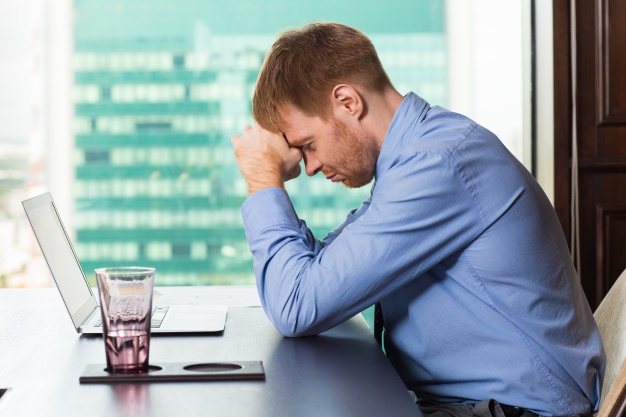
The employee will stop focusing on duties in hot or cold weather
The importance of office climate
For performing work duties during the working day, the employee receives a salary and is given leave. In turn, the manager receives his own profit. But if the microclimate in the room is disturbed and a person suffers from heat or cold, he will not be able to concentrate on performing his duties. This will result in his boss receiving poor quality work or missed schedules and deadlines.
Avoid sharing utensils in the office
A tea set, glasses for water, or a fully equipped office kitchen are, of course, convenient. But you can hardly be completely sure of the cleanliness of common dishes? Mugs and glasses are a good source of pathogens that are dangerous to your health.
Warn all employees to stock up on their own personal mugs and glasses and avoid office glassware altogether.
And for guests, if you are used to treating them to coffee and tea, buy disposable tableware. Moreover, now there are very decent options that don’t look like plastic from the nearest street pub.
What should an employee do if the employer does not comply with the temperature regime?
If the head of an organization does not care about the comfort of employees and does not create optimal working conditions, the employee should not endure this for fear of dismissal (according to the law, anyone can protect their rights). In this case, it is necessary to write a statement to the sanitary and epidemiological service after the boss, after two requests, does not respond to requests to create optimal conditions, that is, does not fulfill his direct duties.
As a result of this action, regulatory authorities will come to the organization, and if the claim is justified, the employer will be held administratively liable.
Note! In addition to the requirements to eliminate identified violations, the head of the structure will receive a fine.
Employer's liability
Providing comfortable conditions in the workplace is the responsibility of the employer, and not a gesture of his good will. Only by creating proper working conditions, the employer has the right to require employees to work according to the schedule. This rule is enshrined in Article 163 of the Labor Code of the Russian Federation. If the norms stipulated by sanitary rules are violated, the employer takes immediate measures to eliminate them.
An employee has the right to apply to the State Labor Inspectorate for the protection of his rights.
The sanitary and epidemiological service can inspect the enterprise upon a complaint from any worker. If violations are detected, a fine is imposed (from ten to twenty thousand rubles).
What to do if it's cold in the office
In order to create comfortable working conditions for employees in winter, the employer is obliged to additionally purchase heaters for the office if the temperature regime according to SanPiN is violated.
Another way out of this situation is to invite workers who will check the pipeline through which hot water for heating flows. Perhaps the pipes were clogged, and therefore the room was poorly heated.
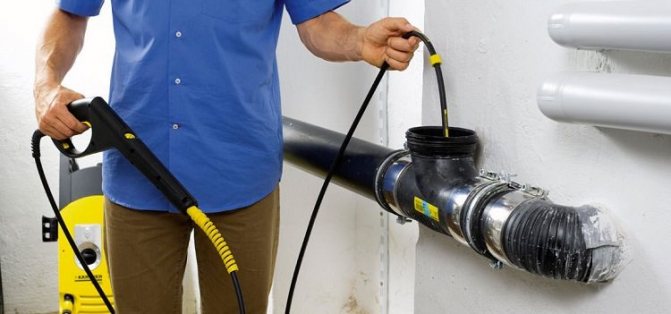
A worker clears a clogged pipe
Clean office floors daily
Another simple and straightforward way to avoid the spread of infectious diseases in the office is to wash the floors.
Many small companies, in order to save money, carry out wet cleaning in the office 1.2 times a week. It is better to abandon such savings and move on to daily cleaning of floors.
It’s worth arranging with the cleaning lady to wash the floor with chlorine-containing products at least a couple of times a week. Alas, even if this smell disgusts you and reminds you of the Soviet past, you will have to be patient.
Ventilation of premises: SanPiN standards
If the office gets too hot in the summer, the employer needs to purchase fans or install a split system in the room. But at the same time, it is necessary to ensure that the cooled air of a working air conditioner does not fall directly on a person, otherwise there is a risk that he will get sick and will have to pay sick leave, and not a fine for violating SanPin standards.
Important! Ventilating rooms and installing high-quality ventilation is another way to lower the temperature, but not the most effective.
Wipe down window sills, tables, door handles, etc.
There are many objects in the office that you and your colleagues touch frequently. These are tables, door handles, railings, telephone handsets, keyboards, etc.
The influenza virus, for example, remains viable on such surfaces for up to 48 hours.
Therefore, ask either the workers or the cleaning lady to wipe down all common surfaces.
Employees don't always like having people move things on their desks. Therefore, purchase and distribute antibacterial wipes to them.
Air conditioning - enemy or friend
Experts say that an air conditioner can quickly and efficiently cool a room, but at the same time it negatively affects a person’s health if he is constantly exposed to a stream of cold air (for the same reason, installing a cooling device in educational institutions is not recommended, since a student may catch a cold) .
Therefore, when turning on the air conditioner, the employer must make sure that no employee is directly exposed to the air coming from the installed split system (in this case, it is better to limit ventilation). Otherwise, you will have to pay sick leave in the near future.
Buy and have masks in the office
Whether healthy people need a mask and how much it helps prevent infection - neither doctors nor epidemiologists can answer for sure. There is debate on this topic and, obviously, this debate will last for a long time.
But it is known for sure that it is best for a sick person to wear a mask so as not to infect others.
An employee may become ill on a workday and develop a fever and cough. Of course he needs to be sent home. But while he is getting ready, give him a mask.
Masks may also be needed in cases where several people are forced to perform work in a small room. For their own safety, it is better for them to wear masks.


